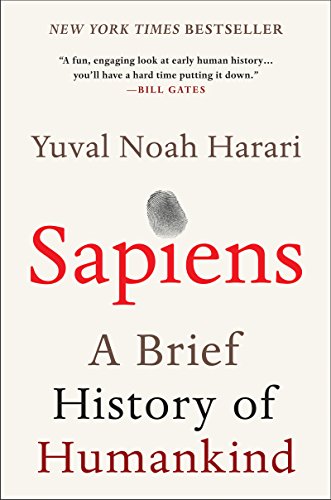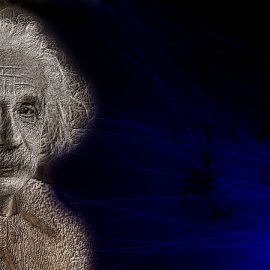

This article is an excerpt from the Shortform summary of "Sapiens: A Brief History of Humankind" by Yuval Noah Harari. Shortform has the world's best summaries of books you should be reading.
Like this article? Sign up for a free trial here .
What is a chaotic system? What are some examples of chaotic systems, and how does the fact that history is a chaotic system affect our ability to explain the past?
A chaotic system is a dynamical system that’s highly influenced by its beginnings. A chaotic system can’t be explained because it’s impossible to see how all its variables interact. There are two kinds of chaotic systems: level one chaotic systems and level two chaotic systems.
We’ll cover how chaotic systems work, why they’re unpredictable, and the difference between level one and level two chaotic systems.
History Is a Level Two Chaotic System
One reason we can’t explain history or predict the future is that history is chaotic—it’s too complex to understand how all the variables interact. Not only is history chaotic, it’s a “level two” chaotic system.
A level one chaotic system is not affected by predictions we make about it. For example, the weather is a level one chaotic system. We can make predictions about the weather tomorrow, but those predictions don’t have the ability to change the weather tomorrow.
A level two chaotic system is affected by predictions we make about it. For example, the oil market is a level two chaotic system. If we predict that the price of oil will increase from $90 a barrel today to $100 a barrel tomorrow, traders will buy a bunch of oil today so they can benefit from the rise in price tomorrow. But this action increases oil prices today, which in turn changes the price of oil tomorrow.
Similarly, politics is a level two chaotic system. If someone were to have predicted the Arab Spring and told Egypt’s President Mubarak that a revolution was imminent, he would have taken actions to prevent it, perhaps lowering taxes and increasing government handouts. In doing so, he likely would have prevented the Arab Spring, nullifying the original prediction.
Level two chaotic systems, like history, are inherently unpredictable.
History Isn’t Predictable
The hindsight fallacy (or hindsight bias) is the human tendency to believe that events that have already happened were more predictable than they actually were. Looking back, we think we could have predicted how history would unfold—it seems obvious in hindsight. But while today we can describe how history has unfolded so far, we can’t say why it’s turned out the way it has. This is because history is a chaotic system.
For example, we can detail the events leading up to Christianity’s take-over of the Roman Empire, but we can’t determine the causal links between these events. We don’t know why Emperor Constantine chose to convert to Christianity when he could have continued to practice his own polytheistic religion. He also could have converted to Manichaeism, Zoroastrianism, Judaism, or Buddhism, all of which were available to him at the time. But he chose Christianity, which, as we’ll see, was actually an unlikely choice.
The less we know about a historical period, the more we tend to think that the events of that period were inevitable. We can’t see that history is a chaotic system. The more we learn, the more we see all the roads untaken, some of which were more probable. History often takes unexpected turns—what seems inevitable now was seen as extremely unlikely at the time.
For instance, if you were to suggest in AD 306 that Christianity, an obscure sect of Judaism, would become the religion of the Roman Empire, your contemporaries would laugh at you. Similarly, no one could have reasonably predicted that a tiny Russian faction called the Bolsheviks would take over their country in a matter of years. It’s not that anything is possible in history. It’s just that there are far more options than we realize.
For the same reasons we can’t explain why history happened the way it did, we can’t predict the future. If history is a chaotic system, so is the future. We can’t know if we’re out of the global economic crisis or if China will become the world’s leading superpower.
Why do we fall for the hindsight fallacy? We like to think that history is deterministic because it means that everything that has happened was supposed to happen. It’s comforting. Conversely, it’s unnerving to realize that all the events leading up to this moment could have easily turned out differently and that it’s only a coincidence that most of us today believe in collective fictions such as capitalism and human rights.
———End of Preview———

Like what you just read? Read the rest of the world's best summary of "Sapiens" at Shortform . Learn the book's critical concepts in 20 minutes or less .
Here's what you'll find in our full Sapiens summary :
- How Sapiens outlived and outlasted the 8+ other human-like species on Earth
- The 3 critical revolutions in human existence that led to our domination of the planet
- How much of what powers our world today is really just a shared mass delusion
- What the future of humanity might look like






